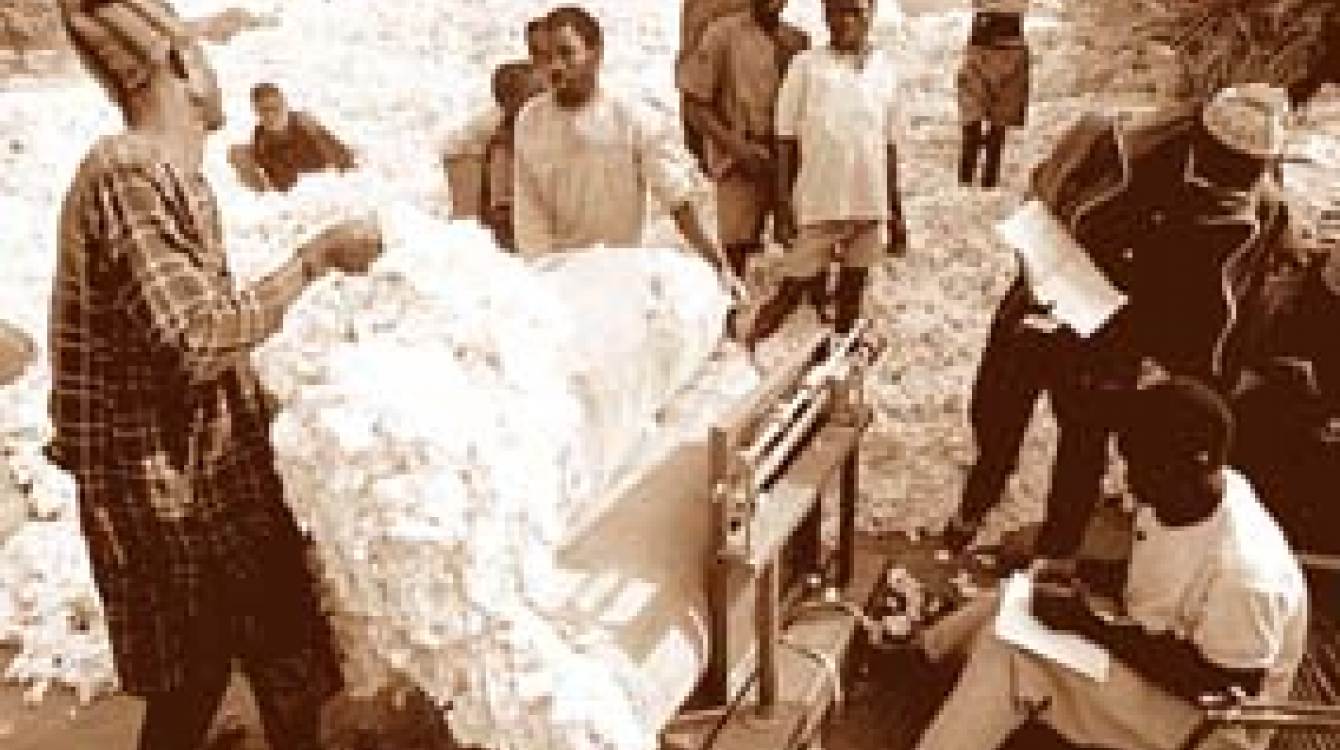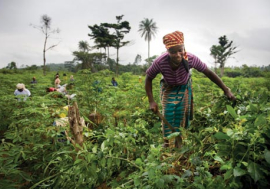How Northern subsidies hurt Africa
From Africa Recovery, Vol.16 #2-3 (September 2002), page 29
One of the many economic differences between developed and developing countries is that developed countries subsidize farmers while developing countries tax farmers. But what do agricultural subsidies in Canada, Japan, the US or the European Union (EU) have to do with Africa? Everything.
Developed countries subsidize their farmers at a rate of about $250 bn a year, 25 times more than the annual amount the UN estimates is needed worldwide to combat HIV/AIDS. Subsidies influence world prices, since they encourage farmers in developed countries to export more agricultural products than they would otherwise. Therefore, agricultural policies in developed countries should be of great interest to Africa and the rest of the world.
Agriculture has been -- and in the foreseeable future will continue to be -- the backbone of sub-Saharan Africa's economy. The sector employs about 70 per cent of the labour force. Agriculture is the main generator of export revenue in the region.
Cotton farmers in Burkina Faso: World prices are depressed.
Photo : ©Jorgen Schytte
Agricultural subsidies in developed countries reduce world prices, and thus the incomes of African farmers. World Bank studies suggest that US subsidies alone reduce West Africa's annual revenue from cotton exports by $250 mn a year. The EU also heavily subsidizes its farmers. The EU, which by the dictates of comparative advantage would be a net importer of many agricultural products, is the second largest exporter (after the US) of agricultural produce.
In 1993, during the last days of the General Agreement on Tariffs and Trade (GATT), the predecessor of the World Trade Organization (WTO), an agreement was reached requiring developed countries to reduce agricultural subsidies. However, even at the time of the agreement, it was clear that it had many loopholes and that only modest reductions in subsidies could be expected.
Worse still, countries were left with broad discretion that allowed them to increase subsidies on "sensitive" commodities. In practice, this refers to those commodities whose producers have strong political clout.
In May 2002, US President George Bush signed a farm bill that would increase subsidies by $83 bn over a period of 10 years. This will raise subsidies to cotton growers by more than 60 per cent. Therefore, other things being equal, cotton producers in East and West Africa and other developing areas should not expect the world price of cotton to go up anytime soon.
It is possible that the damage caused by agricultural subsidies in the US to African countries exceeds even the benefits that might come from the African Growth and Opportunity Act that gives African products preferential access to the US market.
African countries must continue to challenge the US and other developed countries to reduce agricultural subsidies. Agricultural subsidies in developed countries may seem good to importers of food. But in reality, some of those countries are food importers in part because of the subsidies. African countries must remember that higher world prices of agricultural products would encourage their own farmers to produce more, with the potential for their countries to become exporters of food. With that in mind, African countries must also continue to reduce domestic taxes on farmers.
* Richard Mshomba, from Tanzania, is associate professor of economics at La Salle University, Pennsylvania, US. He is the author of Africa in the Global Economy (Lynne Reinner Publishers: Boulder, Colorado, 2000), which was selected by Choice magazine as an "outstanding academic book" of the year.





















